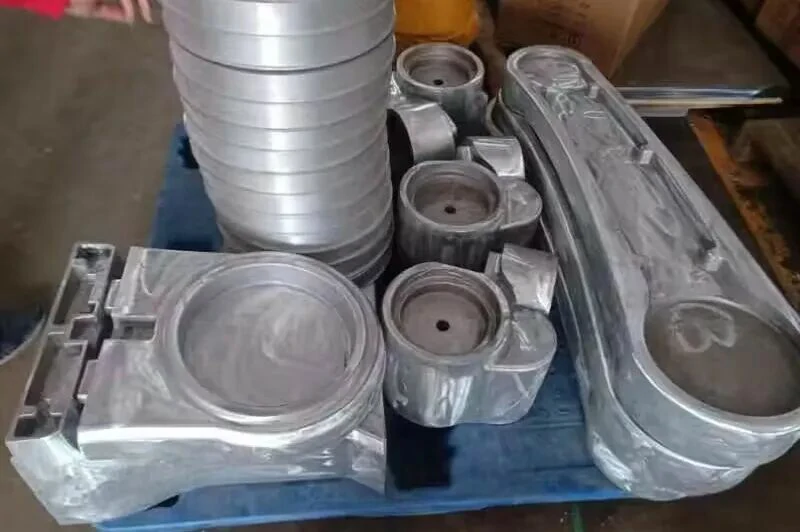How to Find Eco-Friendly Alloy Casting Manufacturers in China | Sustainable Industrial Solutions
Global OEMs and industrial buyers increasingly ask: how to find eco-friendly alloy casting manufacturers in China who can deliver sustainable casting alloy services for OEM and industrial buyers without sacrificing quality or delivery. Welleshaft, a China-based alloy casting company exporting to USA, Brazil, and Southeast Asia, provides energy-efficient aluminum and zinc casting alloy solutions, low-carbon casting alloy production for heavy machineryet custom sustainable casting alloy for engineering applications, helping companies meet ISO 14001, ASTM, and GB/T standards while reducing costs and carbon footprint.
Pain Points in Sustainable Alloy Casting Manufacturing: How to Find Eco-Friendly Alloy Casting Manufacturers in China
Finding reliable industrial casting alloys manufacturing partners is challenging due to:
- High energy consumption and CO₂ emissionsin traditional metal casting alloys production
- Low consistency in precision casting alloys manufacturing, causing rework and scrap
- Traceability gapsin non-ferrous alloys, risking ISO 14001 audits
- Delayed deliveryin automotive casting alloys manufacturing due to high defect rates
Example: A German OEM sourcing from a low-cost supplier experienced a 12% scrap rate in custom casting alloy manufacturing, costing $60,000 per quarter in wasted material and missed shipments.
Root Causes of Sustainable Alloy Casting: How to Find Eco-Friendly Manufacturers in China
Technical Causes
- Inefficient Melting Technology:Conventional gas furnaces use ~30% more energy than induction systems in high-strength alloy casting manufacturing
- Alloy Ratio Inconsistencies:Poor process control reduces mechanical properties in precision casting alloys manufacturing
- Recycling Gaps:Lack of recycled casting alloy manufacturing for automotive and industrial use leads to wasted materials
Management Causes
- No Lifecycle Carbon Tracking:Missing emissions monitoring prevents sustainable reporting
- Supplier Verification Gaps:Buyers often neglect what certifications are required for sustainable casting alloy companies
- Short-Term Cost Focus:Ignoring low-carbon casting alloy production for heavy machinery in favor of lower purchase price
Industry Impact on Cost, Quality & Delivery: How to Find Eco-Friendly Manufacturers in China
| Impact | Description | Industry Example |
| Coût | High energy & scrap | 8–15% higher production cost |
| Delivery | Audit and rework delays | Missed OEM deadlines |
| Quality | Inconsistent tensile strength | Higher rejection rate in precision components |
| Brand | ESG non-compliance | Supplier disqualification in Europe |
Peer Case: Competitors lost ISO 14001 certification and contracts; Welleshaft clients retained approval thanks to green foundry and sustainable metal casting company practices.
Sustainable Alloy Casting Manufacturing Solutions
Short-Term Measures
- Upgrade to induction furnaces in industrial casting alloys manufacturing
- Use ISO 14001 certified sustainable casting alloy supplierrecycled materials
- Install temperature/oxygen monitoring for precision casting alloys manufacturing
Long-Term Optimization
- Build closed-loop recycled casting alloy manufacturingsystems
- Partner with China-based alloy casting company exporting to USA, Brazil, and Southeast Asia
- Track emissions and integrate ESG metrics into ERP systems
- Co-develop custom sustainable casting alloy solutionsfor specific industrial applications
Case Study: Welleshaft Sustainable Transformation
Client: European automotive OEM
Challenges: 14% scrap, high gas furnace energy use, ISO 14001 non-compliance
Actions:
- Audit automotive casting alloys manufacturingprocess
- Shift to energy-efficient aluminum and zinc casting alloy solutions
- Introduce waste heat recovery
- Implement custom sustainable casting alloy for engineering applicationsmeeting ASTM A356
Results:
- Scrap reduced 14% → 5%
- Energy cost down 21%
- CO₂ emissions down 18%
- ISO 14001 certification achieved in 60 days
Comparative Analysis: Traditional vs Sustainable Alloy Casting
| Criteria | Traditional Casting | Sustainable Alloy Casting |
| Energy | High gas furnace use | Induction-based, lower energy |
| Emissions | High CO₂ | Reduced 15–30% |
| Material | Limited recycling | Recycled casting alloy manufacturing |
| Quality | Inconsistent | Stable, meets ASTM & GB/T |
| Coût | Short-term low price | Long-term ROI, less waste |
Practical Recommendations for Buyers
- Audit Suppliers:Ask how to find eco-friendly alloy casting manufacturers in China
- Verify Material Traceability:Ensure recycled and certified content
- Use Third-Party Inspections:Confirm quality in precision casting alloys manufacturing
- Focus on Lifecycle ROI:Prioritize low-carbon casting alloy production for heavy machinery
- Collaborate on R&D:Co-develop custom sustainable casting alloy solutions
FAQs
(1)What are sustainable casting alloy solutions for industrial manufacturing?
A1: Processes using recycled materials, energy-efficient melting, and emissions tracking to meet ISO 14001 and ASTM standards.
(2)How can manufacturers reduce carbon emissions in alloy casting?
A2: Using induction furnaces, waste heat recovery, and energy-efficient aluminum and zinc casting alloy solutions can reduce emissions 15–25%.
(3)Which alloy materials are best for sustainable casting applications?
A3: Recycled aluminum, zinc, and magnesium alloys provide strength, recyclability, and suitability for precision and high-strength alloy casting manufacturing.
With 5+ years in industrial casting alloys manufacturing, non-ferrous alloy casting manufacturing, and ISO 14001 audits, Welleshaft helps global OEMs reduce emissions, improve quality, and implement custom sustainable casting alloy solutions for automotive and heavy machinery applications.

